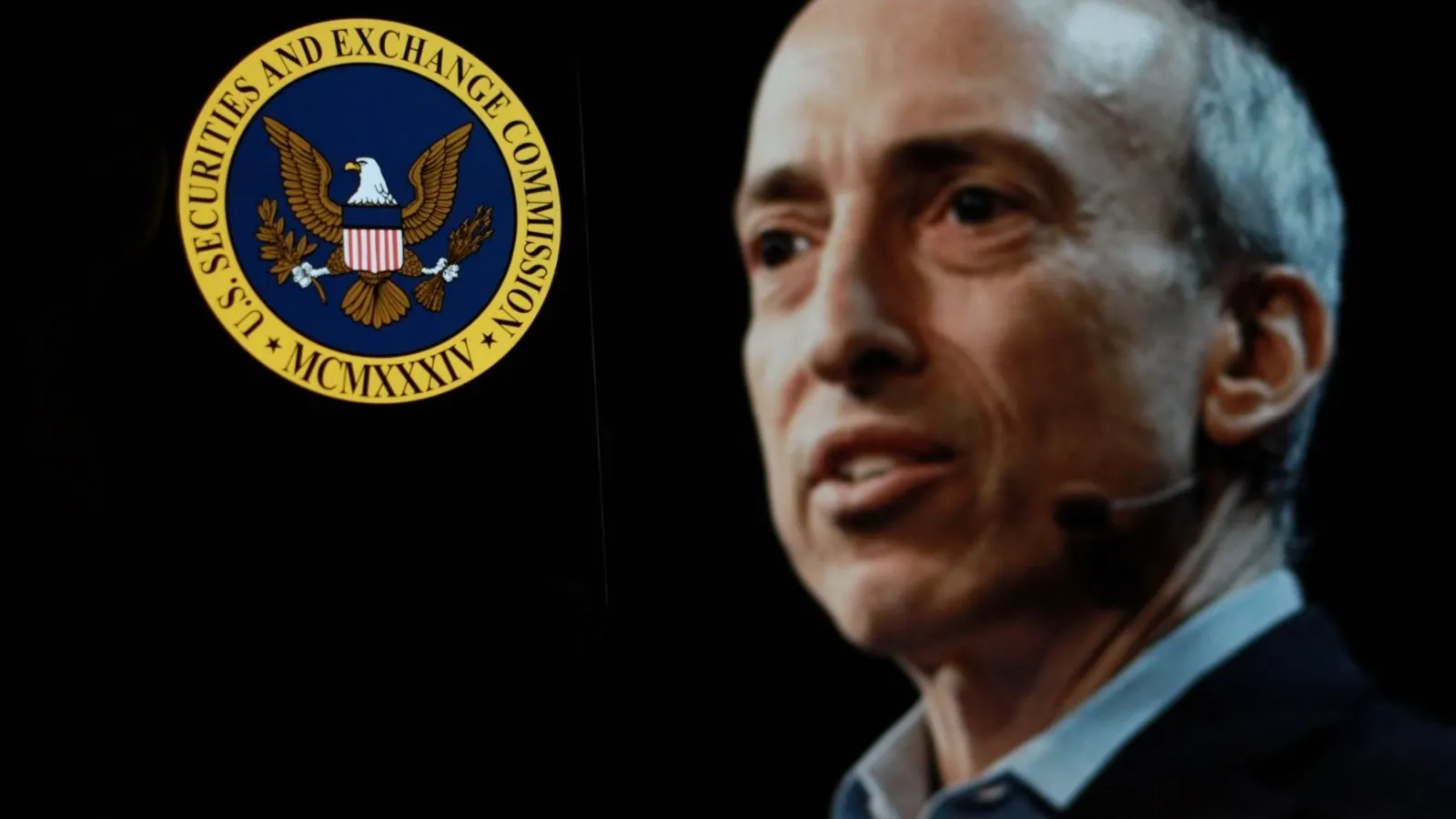The crypto industry appears in reach of an unexpected victory: President Joe Biden, whose administration has been widely criticized as hostile to crypto, now faces a massive wave of pressure to drop out of the 2024 presidential election due to concerns about his age and cognitive abilities.
If such a scenario were actually to unfold, though—if Biden were to drop out of the race, or even resign from the presidency—would crypto still be stuck with its perceived arch-nemesis, U.S. Securities and Exchange Commission (SEC) Chair Gary Gensler?
Gensler, widely considered the driving force behind the agency’s aggressive, yearslong pursuit of American crypto exchanges, DeFi projects, and software developers, was nominated chair of the SEC by Biden in 2021. His five-year term is set to expire in 2026.
Should Biden drop out of the 2024 race or resign altogether, history and existing regulations suggest that a Democratic replacement could swap Gensler out of his leadership position—but things get complicated quickly.
The SEC is made up of five commissioners: three from one political party—typically that of the president—and two from the other. Each commissioner is nominated by the president, and must be confirmed by the U.S. Senate, to staggered five-year terms. Like the Chief Justice of the U.S. Supreme Court, as an example, the Chair of the SEC is nominated directly into that leadership role to replace the previous Chair.
In the 1930s, in response to an attempt by then-president Franklin Roosevelt to shake up the Federal Trade Commission (FTC), the Supreme Court ruled that a president cannot remove any executive agency commissioner unless they demonstrate “inefficiency, neglect of duty, or malfeasance in office.”
But, crucially, a new president does have the power to nominate an existing SEC commissioner to become SEC Chair, and demote the current Chair.
So what does that all mean for Gensler? Let’s take the most extreme potential scenario: Buckling under mounting pressure from Democratic donors, voters, and colleagues, Biden could decide next week not only to stop running for re-election, but to resign from the presidency.
In this theoretical scenario, he does this both to preserve his legacy and to boost the legitimacy of his Vice President and heir apparent, Kamala Harris. Crypto prediction market Polymarket currently has Harris as the Democrats’ most likely presidential nominee.
If Harris were to become acting president later this month, then she wouldn’t be able to remove Gensler from the SEC without cause. It’s also questionable whether she would even want to.
But she would be able to demote Gensler, and elevate one of the SEC’s other two Democratic commissioners to the agency’s chair.
Crypto advocates might not want to break out the fireworks just yet, however. For one, history dictates that presidential replacements rarely flex this power. When Lyndon Johnson ascended to the presidency in 1963 after the assassination of John F. Kennedy, he kept Kennedy’s SEC Chair in place. When Gerald Ford took over for Richard Nixon in 1974, after Nixon resigned in the wake of the Watergate scandal, he didn’t touch the position either.
Making a crypto dream scenario even less likely is the fact that Gensler’s current Democratic colleagues on the SEC may be even more hostile to the industry than he is.
In January, when Gensler opted to greenlight spot Bitcoin ETFs, his Democratic colleague Caroline Crenshaw vocally opposed the approval. She bashed crypto markets as “Petri dishes of fraudulent conduct.” Crenshaw’s term also expires this year.
The SEC’s other Democratic commissioner, Jaime Lizárraga, previously served as a senior advisor to former Speaker of the House Nancy Pelosi. He has echoed many of Gensler’s positions on regulating crypto—including that most digital asset tokens are likely securities.
Ultimately, the historic upheaval currently gripping the Democratic Party may not immediately impact the makeup of the SEC, or the crypto industry’s fortunes. But whoever is sworn in as president come January 2025—be it Biden, Harris, or former president Donald Trump—will be in a critical position to determine crypto’s status in America, potentially for decades to come.
Edited by Andrew Hayward

